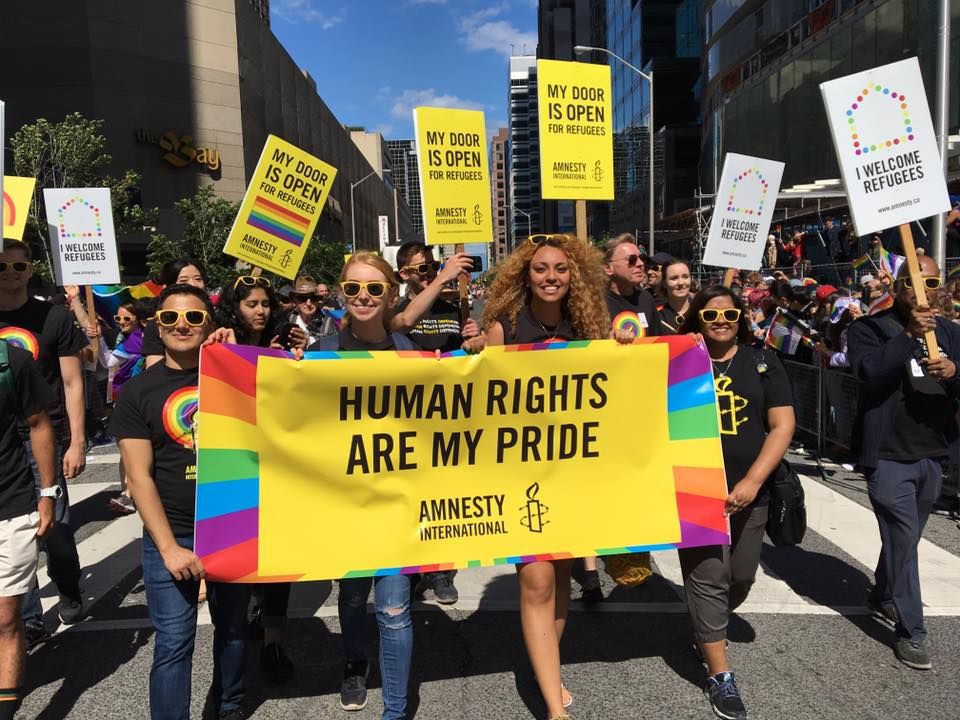Amnesty International’s goal is to ensure that the human rights of everyone, everywhere are respected, protected, and upheld. We conduct research and generate action to prevent and halt human rights violations and demand justice for those whose rights have been violated.
Amnesty International recognizes that lesbian, gay, transgender, queer, and two-spirit (LGBTQ2S), Indigenous, Black, and other people of colour in Canada and around the world disproportionately experience human rights violations perpetrated by the police, state actors, and non-state actors because of systems of oppression.
State and police violence against LGBTQ2S, Indigenous, Black, and other people of colour violate the right to life; the rights to liberty and security of the person; the right to safety and to live free from violence and discrimination; the rights to protest, freedom of expression, freedom of association, and peaceful assembly; and the right to live free from torture and other cruel and inhuman treatment.
This year marks the 50th anniversary of the Stonewall riots, the uprising against state and police violence led by transgender women activists, many of whom were Black or people of colour, and some of whom were sex workers. The Stonewall riots mobilized LGBTQ2S people against police harassment and brutality in New York City and are now celebrated worldwide as a cornerstone of the liberation movements for LGBTQ2S communities, leading to the founding of the first Pride marches.
Pride is fundamentally about the liberation of LGBTQ2S people and intentionally including people who have been disenfranchised and pushed to the margins of society. The intention and spirit of Pride must be to prioritize the inclusion and safety of the most marginalized LGBTQ2S people over the inclusion of institutions that violate the human rights of Black people, Indigenous people, and people of colour.
Many sex workers are LGBTQ2S, Indigenous, Black, and/or people of colour. Canada’s laws on sex work—which is the exchange of sex between consenting adults for remuneration—place sex workers in isolated and unsafe situations where they are at a heightened risk of harassment and violence. Police are tasked with enforcing those sex work laws which threaten the safety of sex workers. Amnesty International advocates for the protection of the rights of sex workers and calls for the repeal of the Protection of Communities and Exploited Persons Act, which criminalizes many aspects of sex work.
As a human rights organization, Amnesty International recognizes the diversity of LGBTQ2S communities. We support the rights of communities to peacefully protest police violence, including the right to decide whether or how to include police participation in Pride festivals.
We encourage Amnesty International members and supporters to make their own decisions about whether to participate in Pride festivals that include police participation.
We recognize that Pride is not the only place to recognize and raise concerns about police violence against marginalized groups, nor is it the only place to show support for LGBTQ2S communities.
To that end, Amnesty International is committed to building on our efforts to address police violence in Canada, and supporting communities pressing for the rights of marginalized groups across the country to be respected, protected, and upheld.
2019 Pride Action Toolkit






















